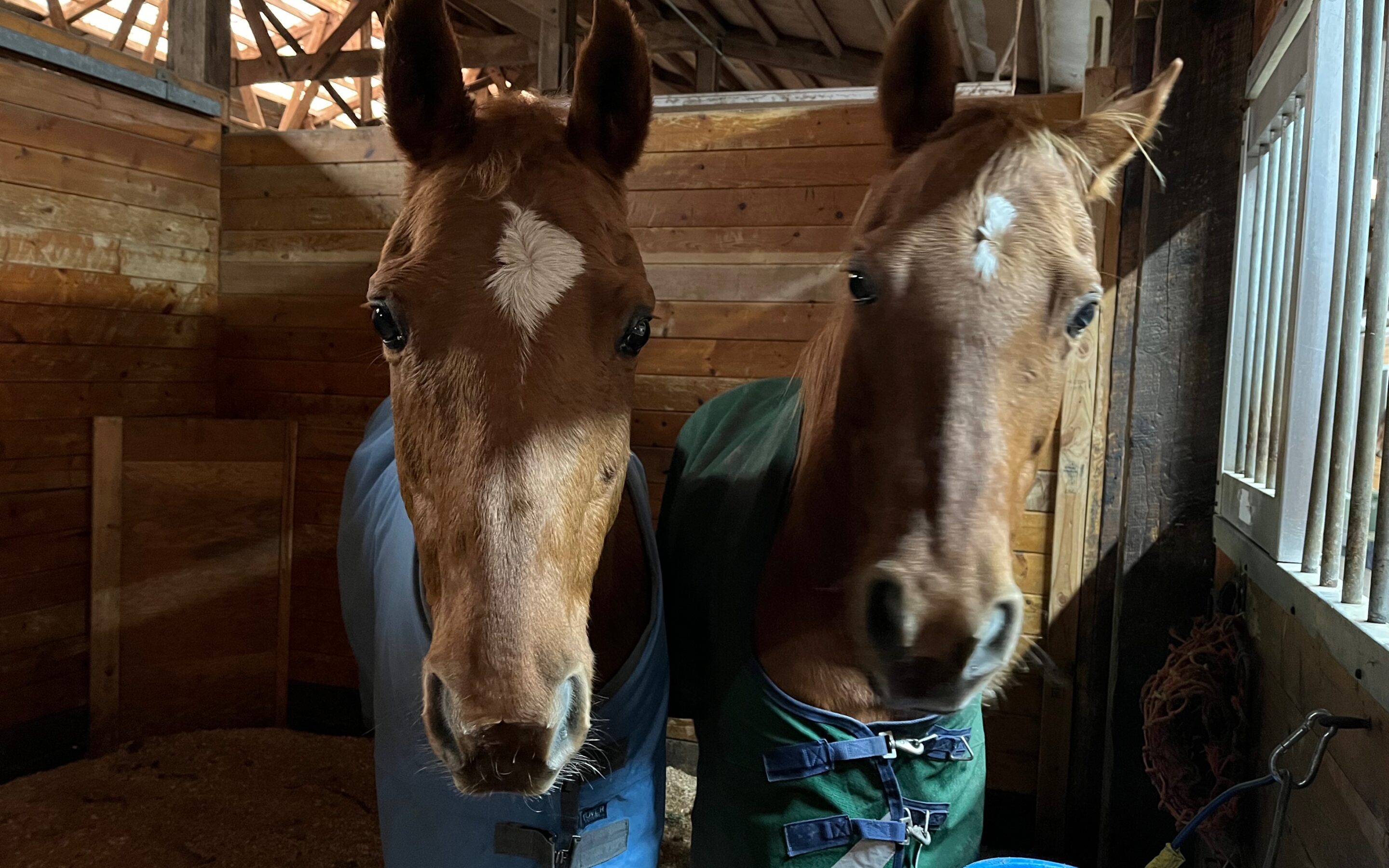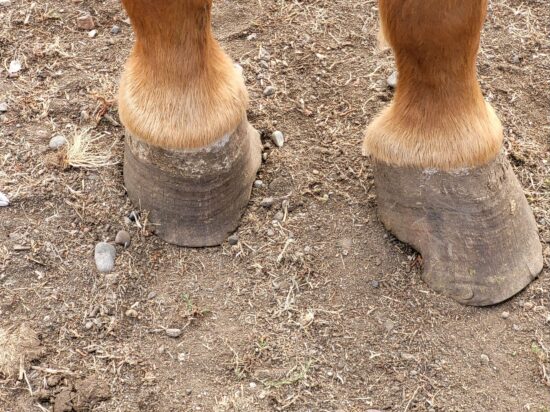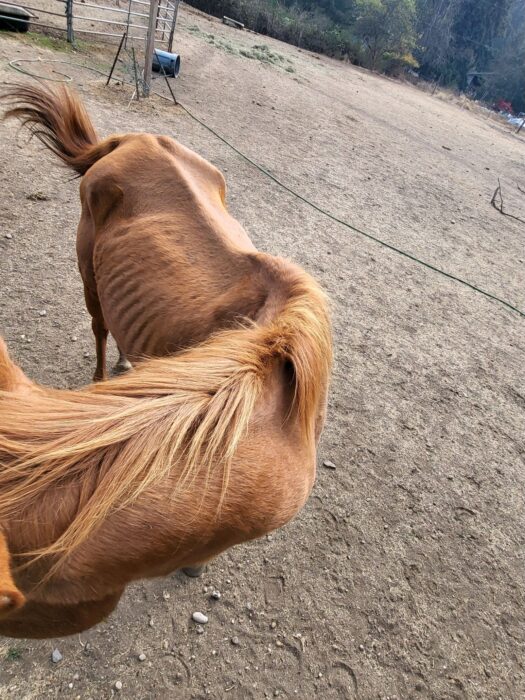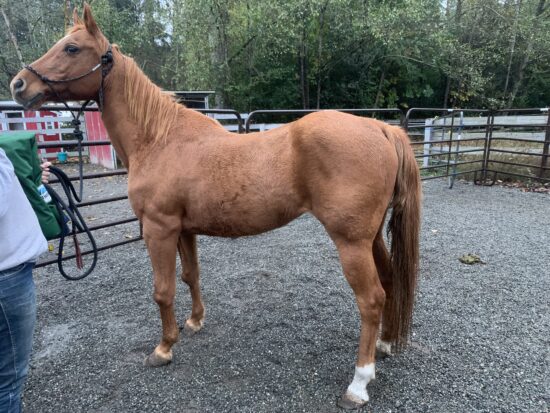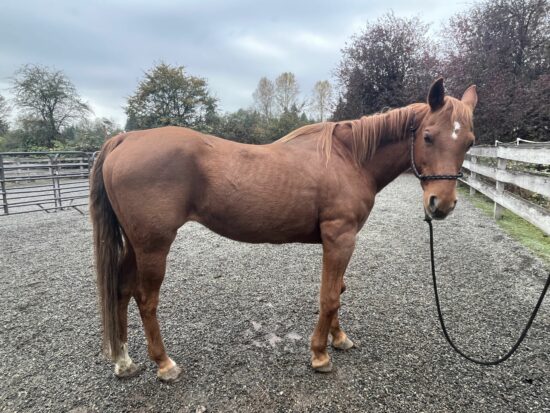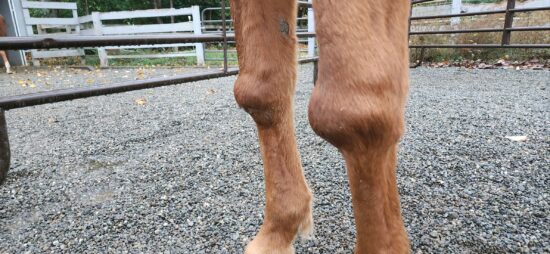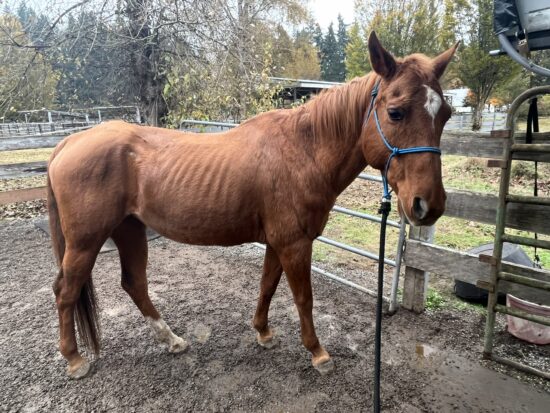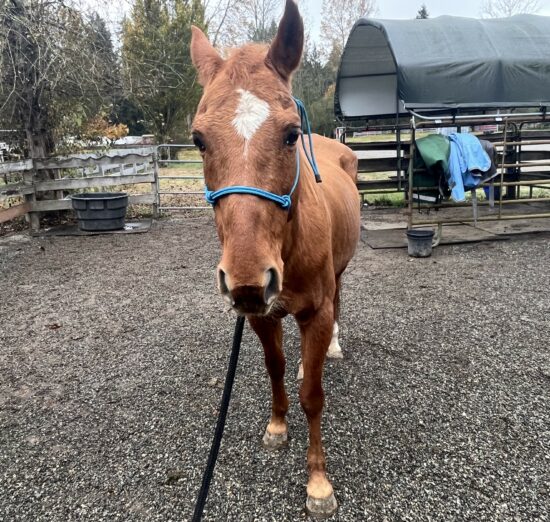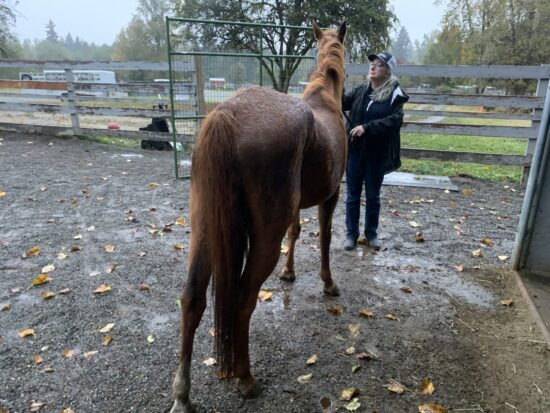We arrived at the property before dark, and found the two mares living in a dirt area behind a dilapidated home, fenced in barbed wire, and filled with hazards. We were greeted by two friendly chestnut mares, sisters in their early 20s. Beva was emaciated, and Aspen had two hugely enlarged knees. The two mares loaded easily, even poor Aspen, who had to gear herself up to step up into the trailer, which she bravely did.
Beva had laid down while we were there picking them up, and pretty much immediately laid down in her shelter when she arrived at SAFE. It was a pretty harrowing night – Beva didn’t eat or drink anything we offered her, she just laid down and stayed down. Night Check found her down at 11pm and thought she might be dead or dying. She was able to stand up twice but she just collapsed back to the ground each time. She didn’t appear distressed; just kind of “done.” At 3am we found Beva cast in her shelter, meaning she had laid down with her hind legs right up against the wall, and could not get back up. We were able to flip her over and free her from the wall. All the while her sister Aspen kept watch over her. The food we’d provided did get eaten but our assumption was that Aspen was the only one eating.
Dr Lewis arrived early the next morning to examine them and take blood from each of them. Looking at Aspen’s knees, she said it was likely arthritis causing the enlargement and severely restricting her ability to move, and that we’d be facing a quality of life decision for her sooner rather than later. Aspen’s bloodwork was normal. Beva’s showed no indication of inflammation or infection, but she did show liver enzyme changes, likely due to her emaciation, and that could result in sudden death. She was also dehydrated. Dr Lewis said that we could opt for hospitalizing her and using a feeding tube…but beyond that, Beva had to decide to start eating. So we were instructed to try feeding her 1.5 lbs of our alfalfa every three hours for the next 24 hours. And we were to try to get her to drink by offering her sweet water and wetting down the alfalfa. She was offered the alfalfa and seemed mildly interested in it. But she ate SO slowly, so we had to separate Aspen so she wouldn’t eat her sister’s food.
As the day and night went on, Beva seemed to decide that our alfalfa hay was actually pretty tasty…! Soon, she was polishing off her meals and nickering for more. They were fed every three hours through the night, and never once found her lying down. The next day she began venturing out of her shelter to stand with her sister, and appeared much brighter. This upswing continued through the weekend, and when Dr Lewis came out for a recheck, she was pleasantly surprised to see a much improved Beva. New bloodwork showed that her liver enzymes were headed in the right direction. We began feeding them every 4 hours, and gradually increasing the amount of hay at each feeding. Soon we were feeding every six hours, and finally, they were onto a “normal” feeding schedule that required no more late night visits. We’d been warned that Beva wouldn’t be out of the woods for 14 days, but she passed that deadline with flying colors, and is well on her way to regaining her weight and her health.
Aspen is being given Equioxx to help her be more comfortable. It’s still too early to know if she can be kept pasture sound, and we haven’t seen her lie down very much if at all, so there could be a quality of life issue there. The two sisters are very close, and very sweet with each other. They spend their days together in a paddock, and at night they come in and share a double stall together. They nicker at everyone who passes by, and love to be petted and scratched.
Welcome to SAFE, sweet mares!!!
- Aspen
- Beva
- Aspen
- Aspen
- Aspen
- Beva
- Beva
- Beva
Watch Beva and Aspen arrive at SAFE here: https://youtu.be/ucSOIiUh1Eo


